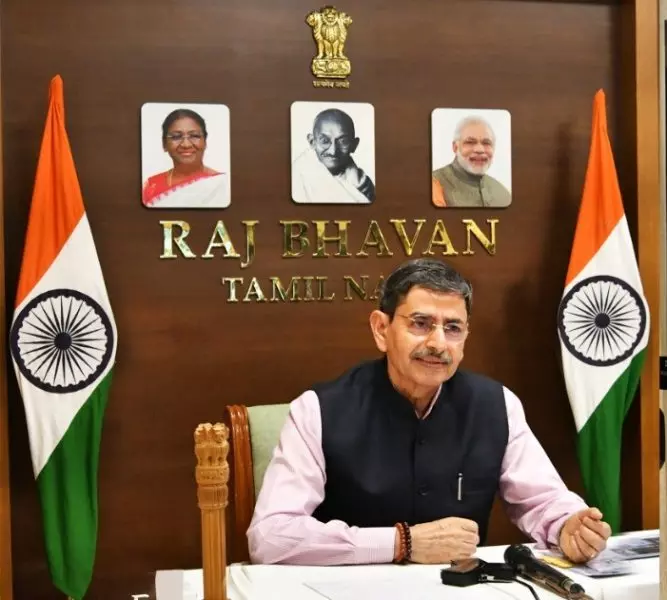
'What was governor doing for 3 years,' asks SC as it questions delay in Tamil Nadu bills
The apex court bench said the concern isn’t related to the conduct of any particular governor but to the Governor’s office in general

The Supreme Court on Monday (November 20) slammed Tamil Nadu Governor RN Ravi as it resumed the hearing of the state government’s plea against delay in clearing the state bills. The apex court asked, “These bills have been pending since 2020, what was he doing for three years?”
The court - hearing similar pleas by the Punjab and Kerala governments - also raised a point of law – “can a governor withhold assent on a bill without sending it back to the assembly?”
The bench comprising Chief Justice of India DY Chandrachud, Justice JB Pardiwala and Justice Manoj Misra noted that the oldest of the pending bills was sent to the governor in January 2020. The bench also recorded the dates on which these 10 bills were sent to the Governor’s office, starting from 2020 to 2023. When the AG pointed out that incumbent Governor RN Ravi assumed office in November 2021, the bench said the concern isn’t related to the conduct of any particular governor but to the Governor’s office in general.
The Supreme Court made these observations after the Tamil Nadu assembly held a special session on Saturday to re-adopt all 10 bills which were sent back to the governor for his assent. The session was called in the aftermath of Governor RN Ravi returning these 10 bills, two of which were passed by the previous AIADMK regime. Chief Minister MK Stalin accused the governor of “insulting” the assembly and people of the state by returning the bills, adding that he had returned the bills without stating any reasons.
Before adjourning the matter till December 1, the court also took note of this development and said, “Assembly has passed the bills again and sent it to the governor. Let us see what the governor does.” The court also pointed out that “once bills are re-passed, they are on the same footing as money bills”.
'No reason for withholding assent'
Moving the apex court, the ruling DMK said the governor’s actions were “undermining the will of the people” by deliberately delaying bills sent for clearance and asking for a specific timeframe. Among the pending bills is the one that clips the governor’s authority to appoint vice-chancellors of state-run universities, and another seeking prosecution of former AIADMK ministers.
Senior advocates Abhishek Singhvi and Mukul Rohatgi, representing the Tamil Nadu government, said, “The governor returned the bills stating ‘I withhold assent’ without giving any reason... The governor has violated every word of the Constitution.” Solicitor-General Tushar Mehta replied, “The governor is not a mere technical supervisor.”
The court noted the governor of any state, under Article 200, has three options - assent to bills presented to him, withhold that assent, or send it to the President of India. “The proviso says the governor may send it to the state government for reconsideration,” the court added. “Can the governor withhold assent on a bill without sending it back to the assembly,” it asked.
Incidentally, Kerala and Punjab have also moved the Supreme Court against their respective governors. With reference to Punjab, the court told Governor Banwarilal Purohit last week that he is “playing with fire.” In the Kerala plea, the court has sought responses from the Centre and Governor Arif Mohammed Khan.

